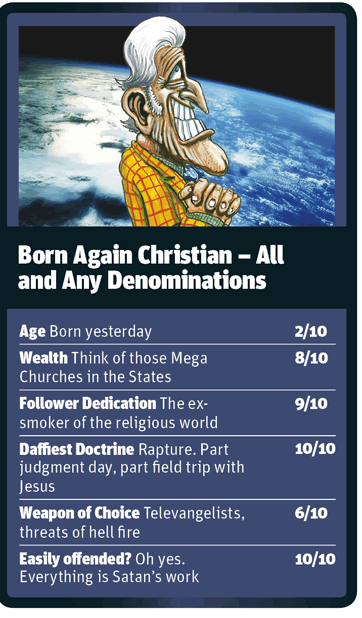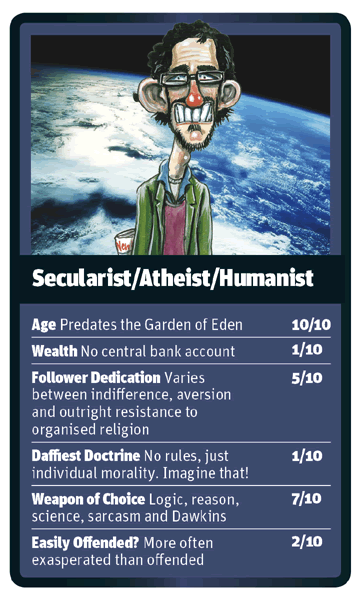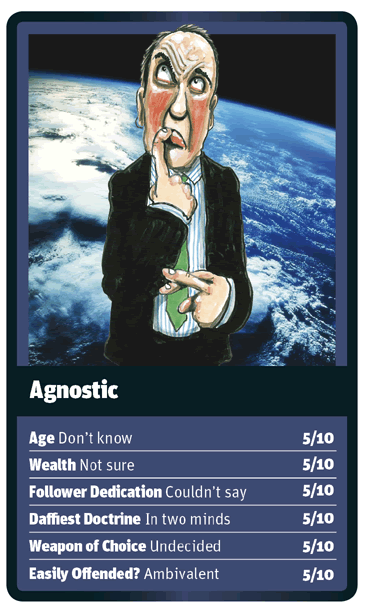Occasionally nasty parody site Landover Baptist has a great list of tips for how to spot them atheists that needs some converting (sic)…
Here’s a summary of their five tips so that you can dob your local atheist in to police:
Five Tips on How to Spot an Atheist
1. Usually Atheists are pale of skin.
They spend a lot of times indoors, because they are afraid to come outside. They believe the preposterous lie that Christians are trying to kill them, when in fact, all that we really want to do is force a quick conversion or to kindly place them in a maximum security prison for their own protection from devout Christians who may try to kill them.
2. Atheists are overweight.
The stereotypes of typical Atheists are the trim, granola cruncher who jogs and plays racquetball or the vain hedonist, party-goer who worships only her full-length mirror, Recent studies have shown, however, that Atheists have become aware of these signifiers of their lack of faith.
3. Atheists have too many university diplomas!
These folks are chock full of secular knowledge. They toss the Bible aside in favor of so-called, “research” and “theories.”
4. Atheists Deceive!
Atheists go under many different names, but they don’t have the common sense to align themselves yet! Use this to your advantage in reporting them to the police! They call themselves, “humanists, agnostics, secular-humanists, moral relativists, Catholics, free-thinkers, undecided, Unitarians, and more recently, Brights.” It is important to note that anyone who has a post-graduate degree or is interested in getting a post-graduate degree, is suspect! Also be warned, Wiccans , Vegans, Yogists, and readers of science fiction are either Atheists or on the road to becoming an Atheist.
5. Atheists are afraid!
Even though there are as many as 300 active Atheists in the United States, we can safely assume that if recent polls are correct, most Atheists are afraid to come out and say what they don’t believe.








